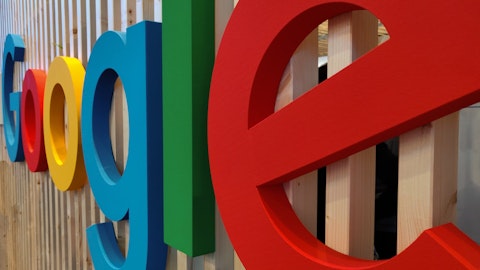4. Bristol-Myers Squibb Company (NYSE:BMY)
Number of Hedge Fund Holders: 70
Cramer highlighted that Bristol-Myers Squibb Company (NYSE:BMY) is one of the cheapest pharmaceutical companies in the S&P 500. He commented:
“Finally, as I’ve been saying pretty regularly for the past few months, I think you should consider building a position for Bristol-Myers Squibb, which happens to be the newest position of my Charitable Trust… This stock has been hot since the summer as investors have bought into the new strategy put forward by CEO Christopher Boerner, who took over late last year.
Now, Boerner’s trying to build world-class franchises in cancer, cardiology, and neuroscience. His plan started paying off when Bristol-Myers got approval for the first and a totally new class of schizophrenia drugs back in September. Something they picked up from a recent acquisition, far fewer side effects than the competition. Doesn’t hurt that AbbVie’s working on a competing product that failed a major clinical trial last month. But after a nice pop on the AbbVie failure, Bristol-Myers has been pulling back this month to the point where it’s now down almost 9% from its mid-November highs.
As with Vertex, I can’t give you a good reason for that. Again, I think the pullback simply reflects concerns about the group, has nothing to do with Bristol-Myers specifically. Hey, by the way, even after rallying some 42% from its early July lows, this stock sells for just 7.9 times next year’s earnings estimates. Boy, you know, that’s the cheapest pharmaceutical company in the S&P 500, aside from the unprofitable Moderna. Bristol-Myers also supports a 4.4% yield. That’s the second best of the group. So to recap, the fundamentals improved dramatically in the second half of this year, the stock’s still dirt cheap and you’re even getting paid to wait with that juicy dividend, which was just boosted last week.”
Bristol-Myers (NYSE:BMY) is a major player in the biopharmaceutical industry, with a focus on developing treatments for a variety of diseases across multiple therapeutic areas. In September, the U.S. Food and Drug Administration approved the company’s schizophrenia drug, marking a significant achievement as the first new class of antipsychotic medicine in decades.
This approval followed the company’s $14 billion acquisition of Karuna Therapeutics in the previous year, through which the company obtained the schizophrenia treatment, Cobenfy (formerly known as KarXT). Cobenfy distinguishes itself from other schizophrenia medications in several ways. Its labeling does not carry a warning about the increased mortality risk in elderly patients, a concern commonly associated with other antipsychotic treatments.
Additionally, unlike many other medications for the disorder, Cobenfy does not lead to the typical side effects such as weight gain and movement disorders. These attributes make Cobenfy a notable addition to BMS’s portfolio of treatments. The company is also undergoing significant structural changes to streamline operations. The company launched a $1.5 billion restructuring initiative earlier in 2024 that is expected to run through 2025.
According to Bristol-Myers (NYSE:BMY) CEO Chris Boerner, BMS management is actively reviewing its overall spending to prioritize investments that will generate the best long-term returns. The company is on track to meet its $1.5 billion cost-saving target by the end of next year.





